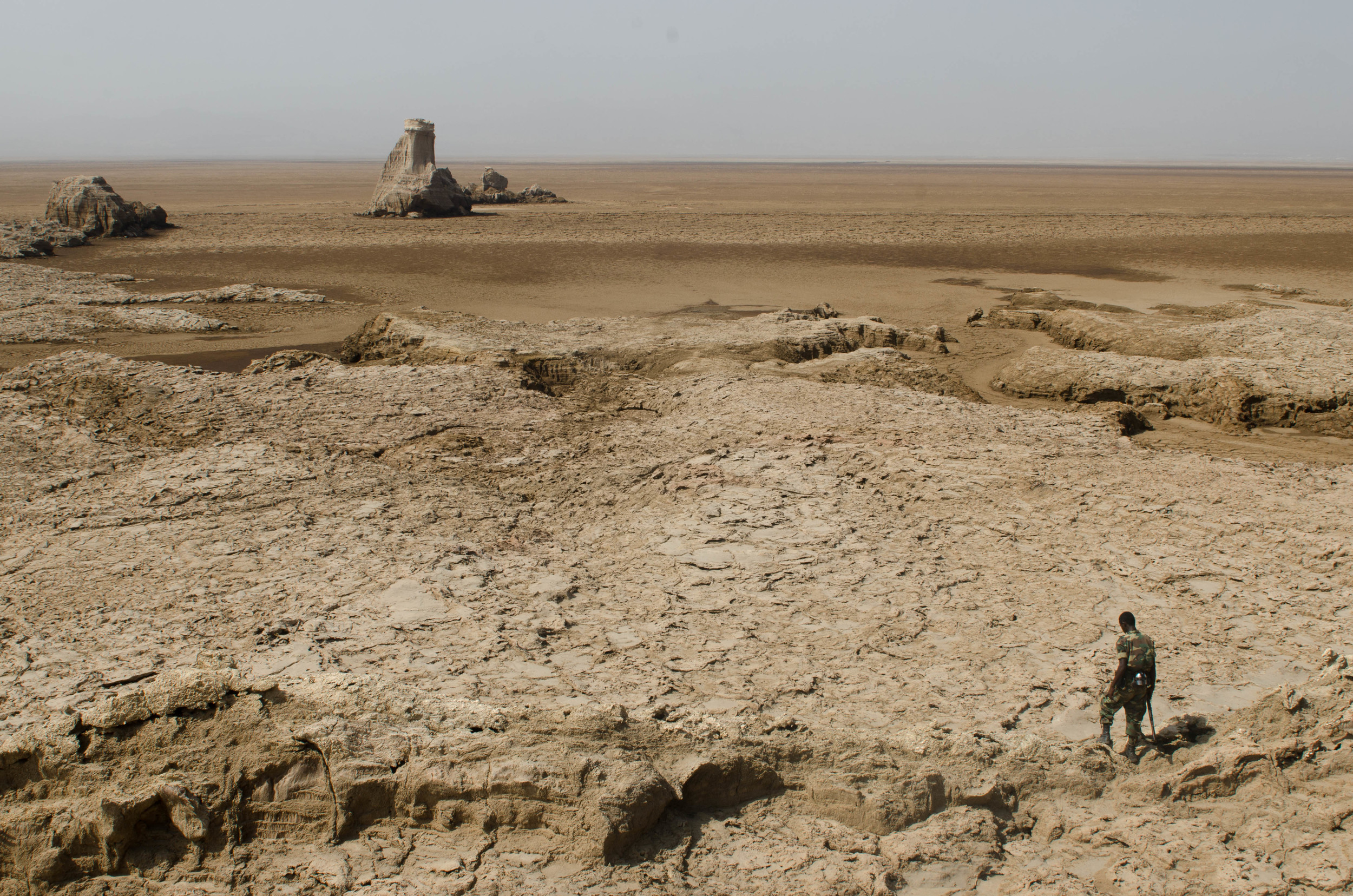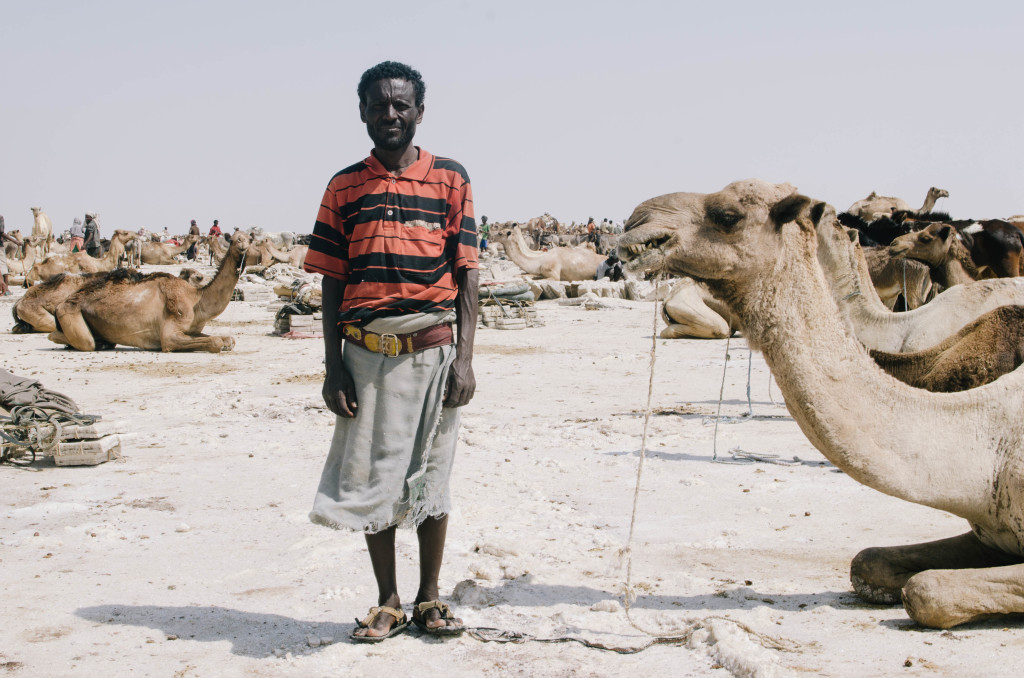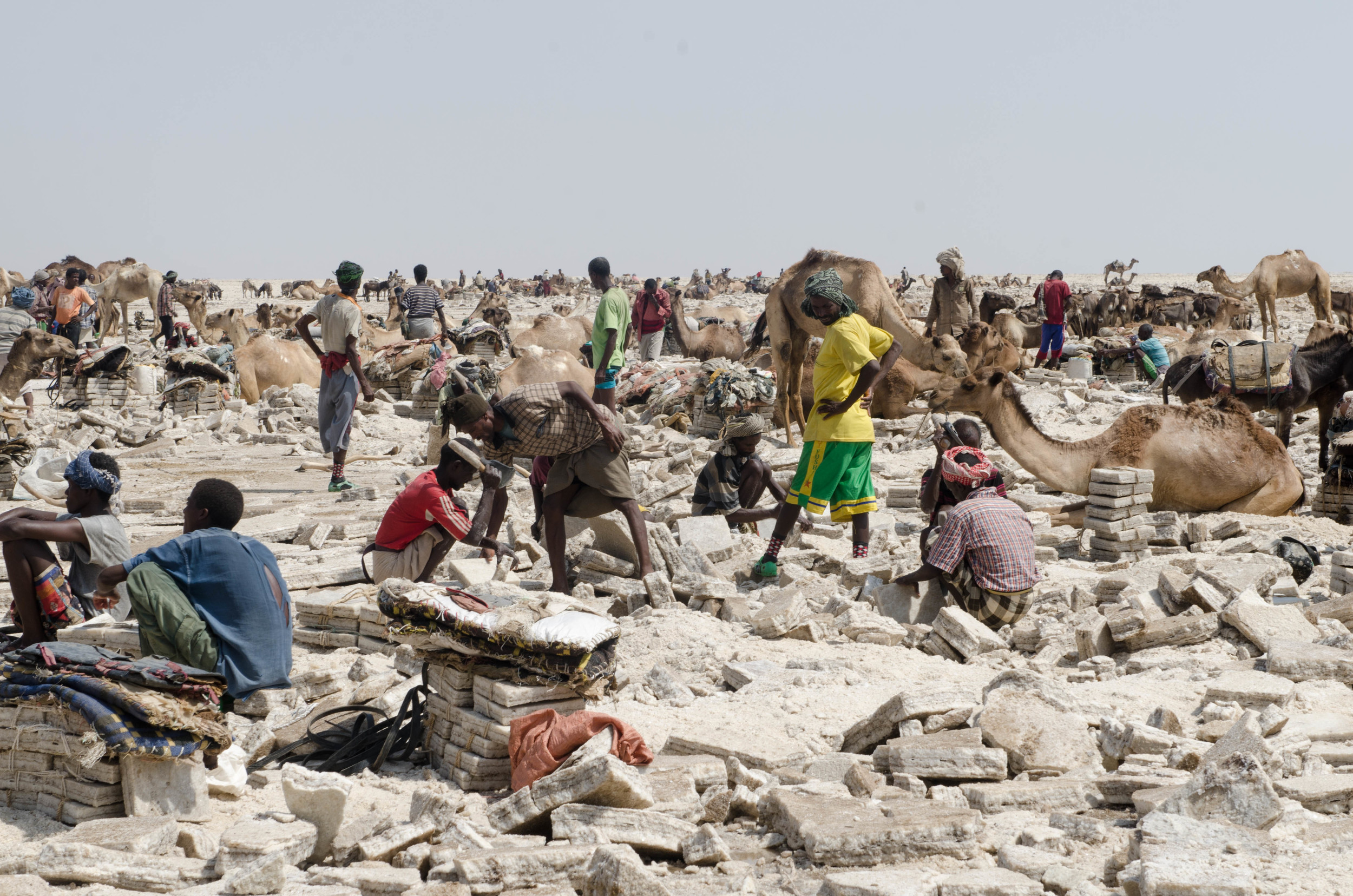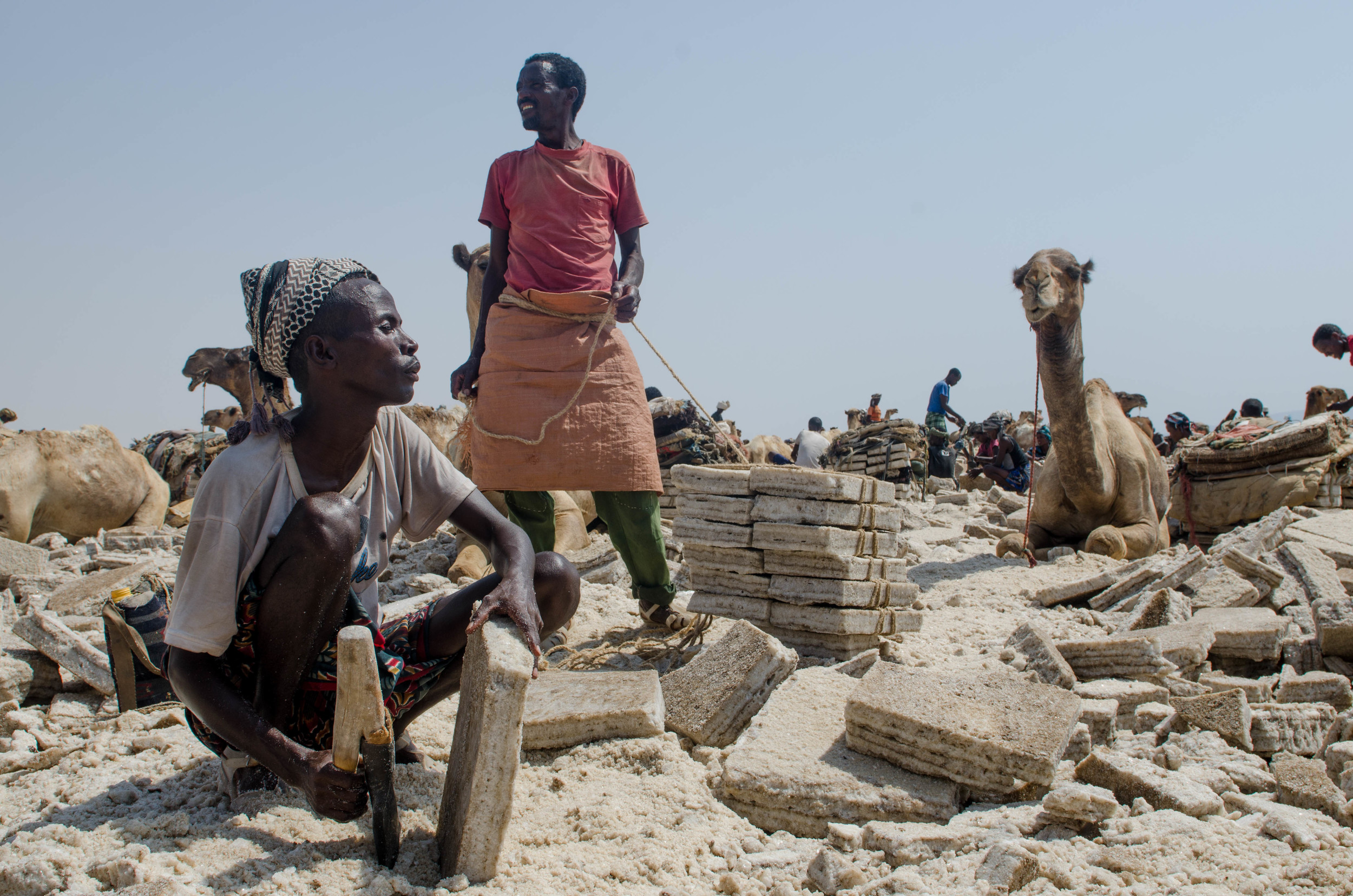Introduce yourself!
My name is Jon Collins and I am a keen explorer originating from a small town on the north coast of New South Wales, Australia. After studying in Sydney I have converted very much into an urbanite, working as a sustainability consultant in the city and adventuring into nature as much as possible in my free time. After growing up in a small town, I had a need to understand what existed in different corners of the planet. I spent my time trawling through National Geographic magazines and looking over an atlas, trying to understand how life could differ so greatly across oceans, on top of mountains, deep in jungles and on sweeping desert sands.
My inspiration to travel is to understand the similarities and differences of human life across geographical scale; absorbing as much information about humankind whether it is race, religion, culture or cuisine. At the end of the day, we are all human, and the beauty of travel is those small moments when you are able to see a glimpse into someone else’s world which you once thought was so different, but see just how similar it is to your own.
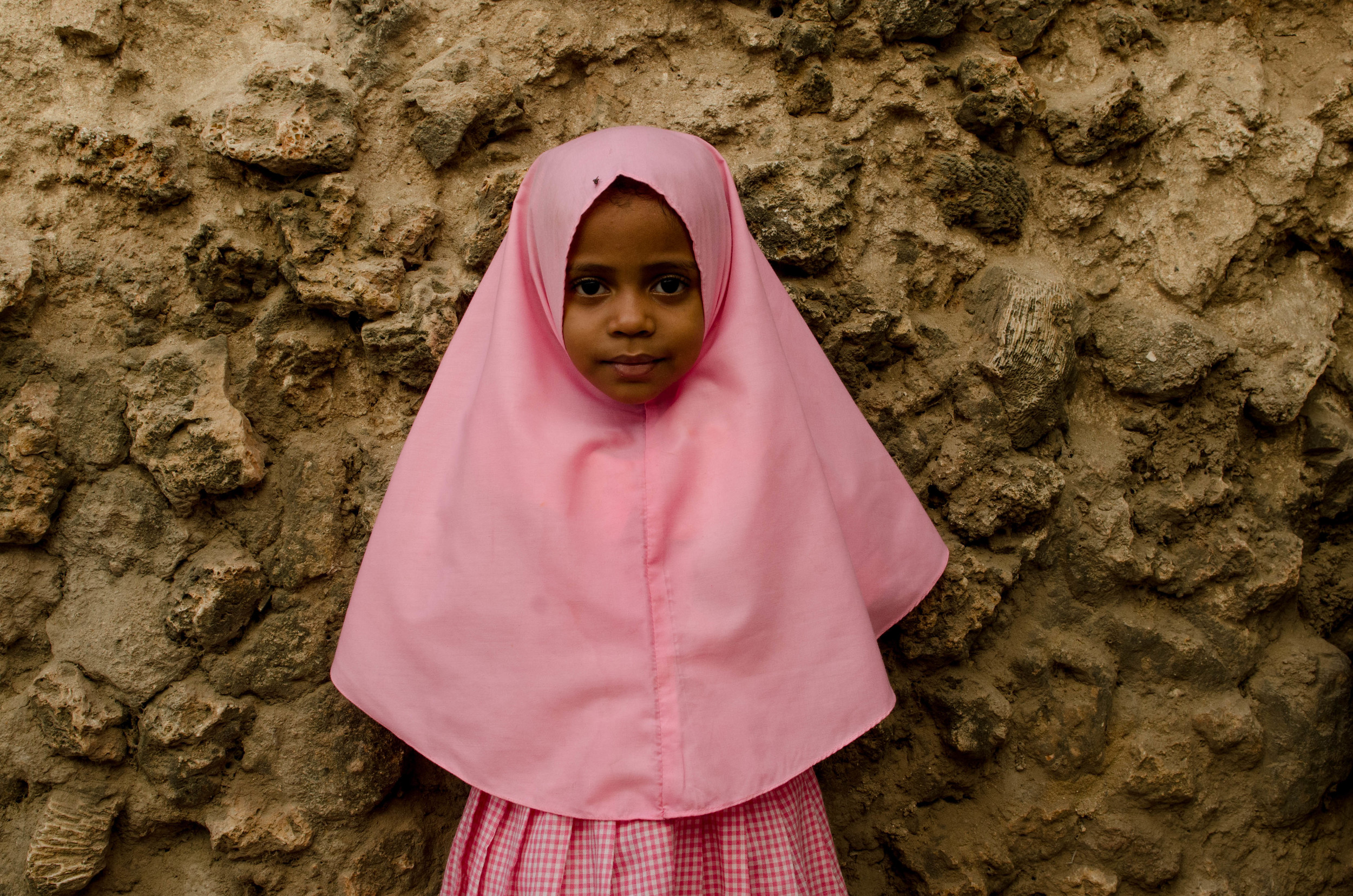
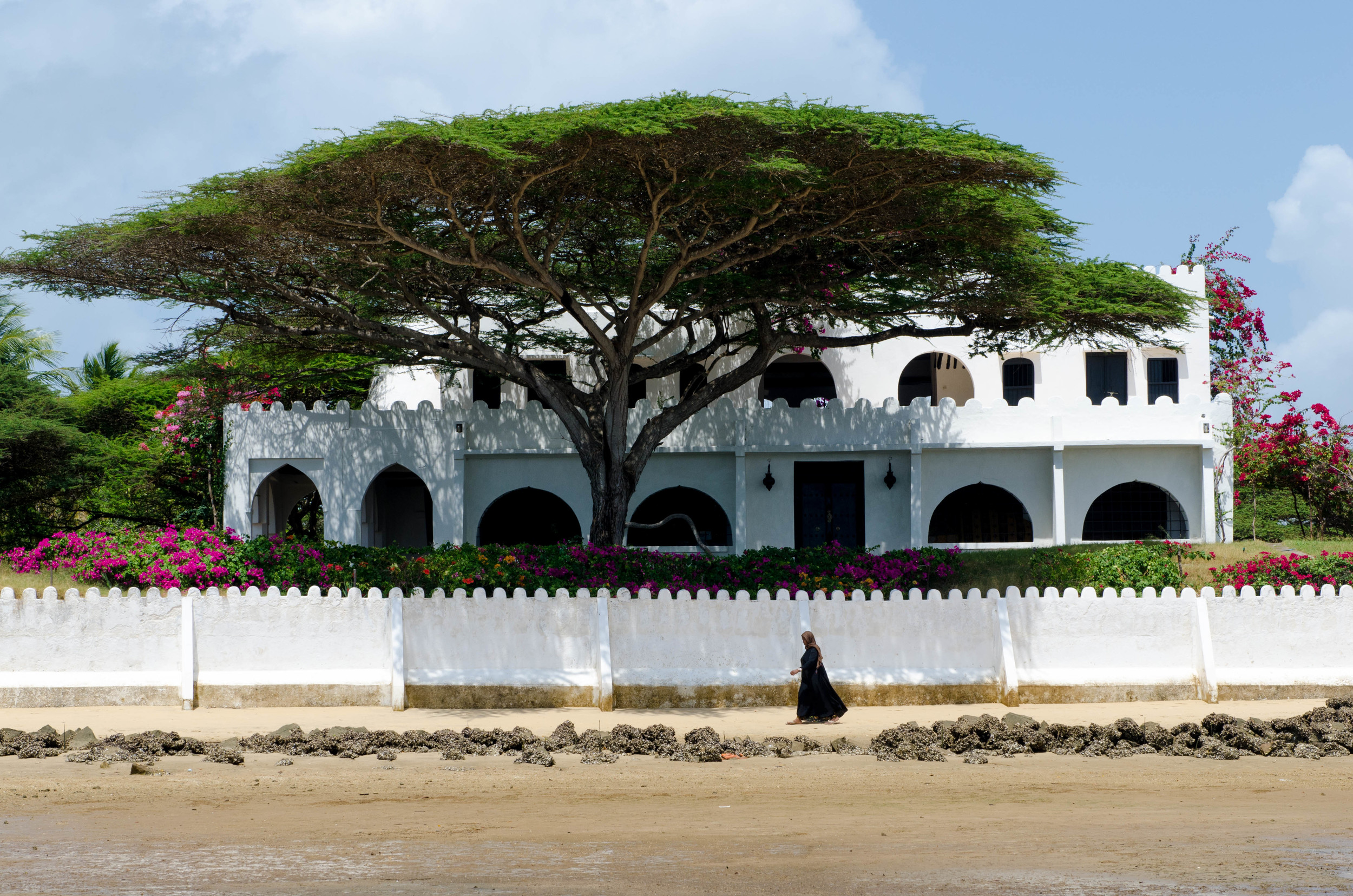
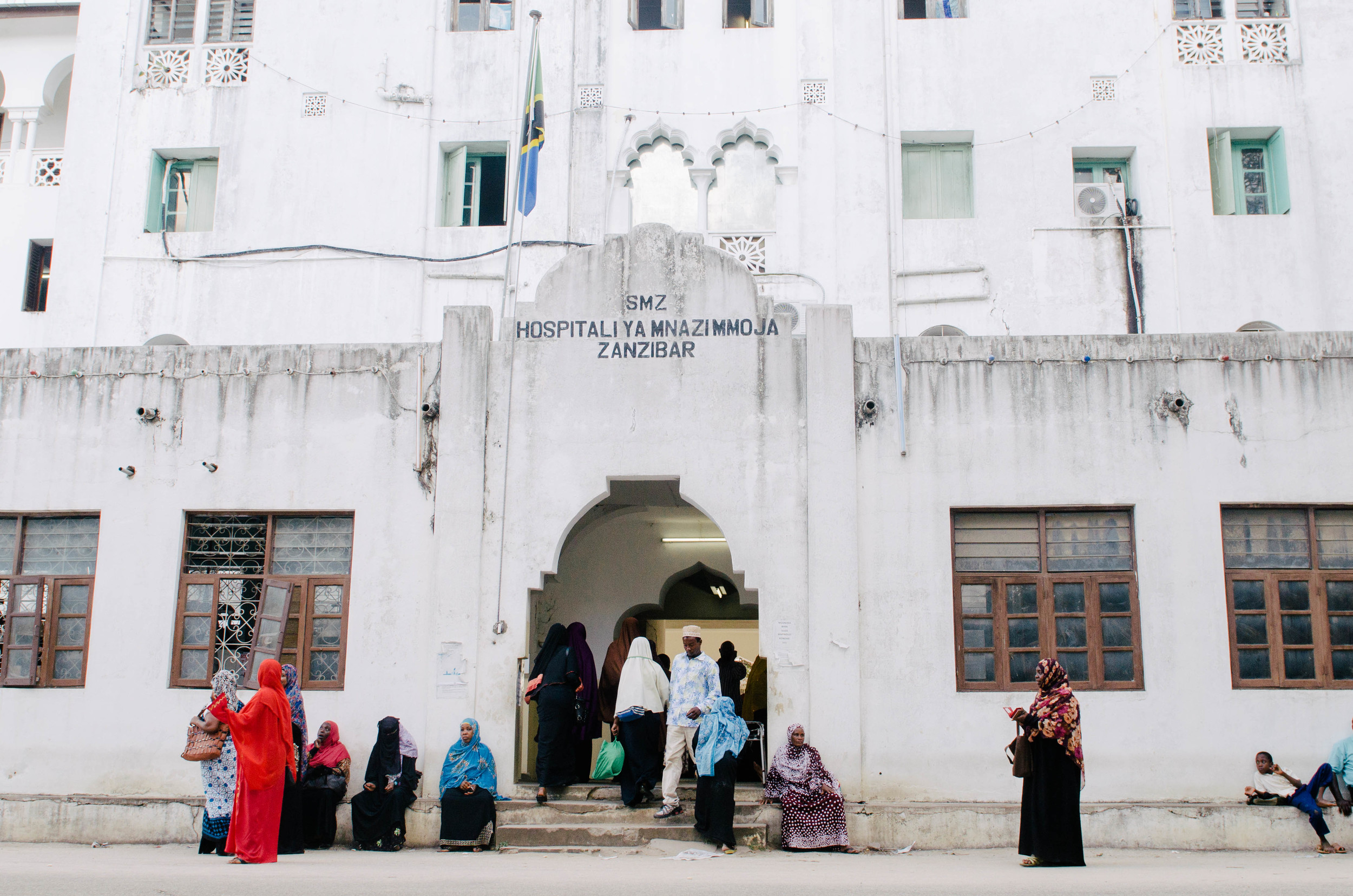

What sparked your interest to backpack throughout Africa? How did you plan for it?
To me, Africa has always conjured the imagination of a real adventure across a huge expansive terrain. Endless plains of acacia trees, burning sunsets, wild safaris and colorfully adorned markets. In reality, the continent is so much more than that. I learnt very quickly that the key to travelling Africa is to not have a set plan. It’s important to be as flexible as possible, particularly when backpacking overland when any number of scenarios can happen. I was disappointed to find a lack of information about travelling routes through Africa that didn’t include package tours or costly volunteering experiences. In many ways, this aspect made it even more of a challenge in an attempt to travel like locals, but ultimately made the experience far more rewarding.
What was your route? Did you travel by yourself or with others?
The route was basically to work from Cairo down to Cape Town by hugging the east coast of the continent, but the plan changed very quickly following the uprising in Cairo during August 2013. I was with a good friend and we decided that an onward flight to Kenya was the best possible solution. We followed the plan as originally discussed by covering Uganda, Kenya, Tanzania and Malawi. Our route was then to follow on to Mozambique and South Africa, but I contracted malaria in northern Malawi and had to be hospitalized in Johannesburg. Surprisingly, my near-death experience in a tin shed hospital in Nkhotakota (Malawi) spurred my passion to keep travelling, and we spent our last remaining time camping and driving our own vehicle in South Africa and Lesotho. When we parted ways in Cape Town after five months together, I knew I had more to see of the continent and flew north to travel throughout Ethiopia, Somaliland, Djibouti, Sudan and finally, Egypt where the journey was meant to begin. When I look on a map, the route is a bit chaotic and completely convoluted but I think it summarizes the fluidity of travelling in Africa.
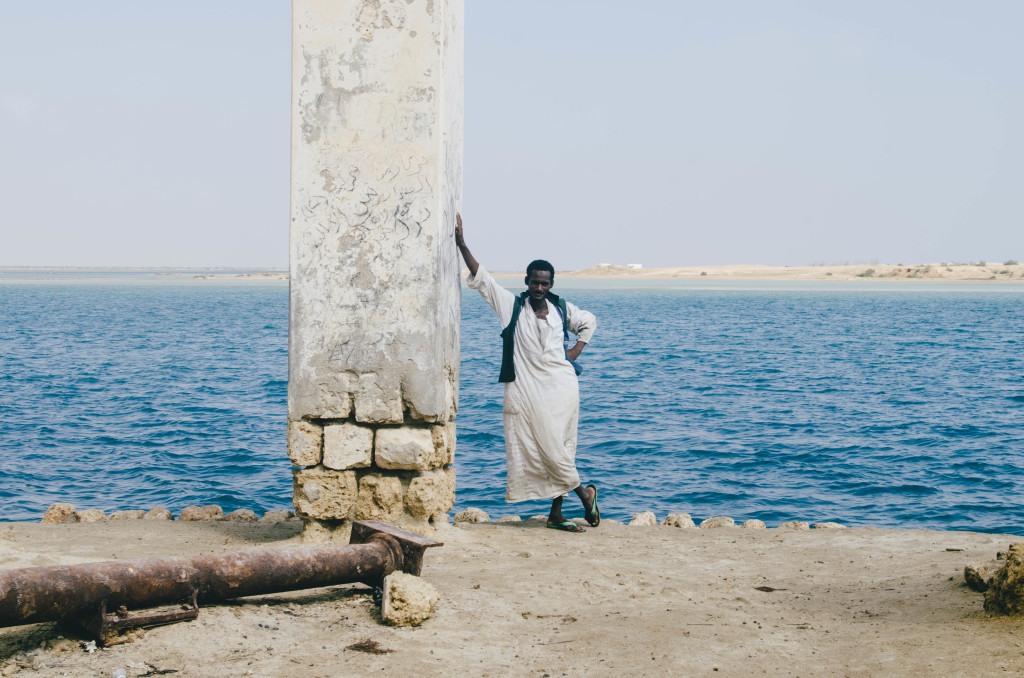
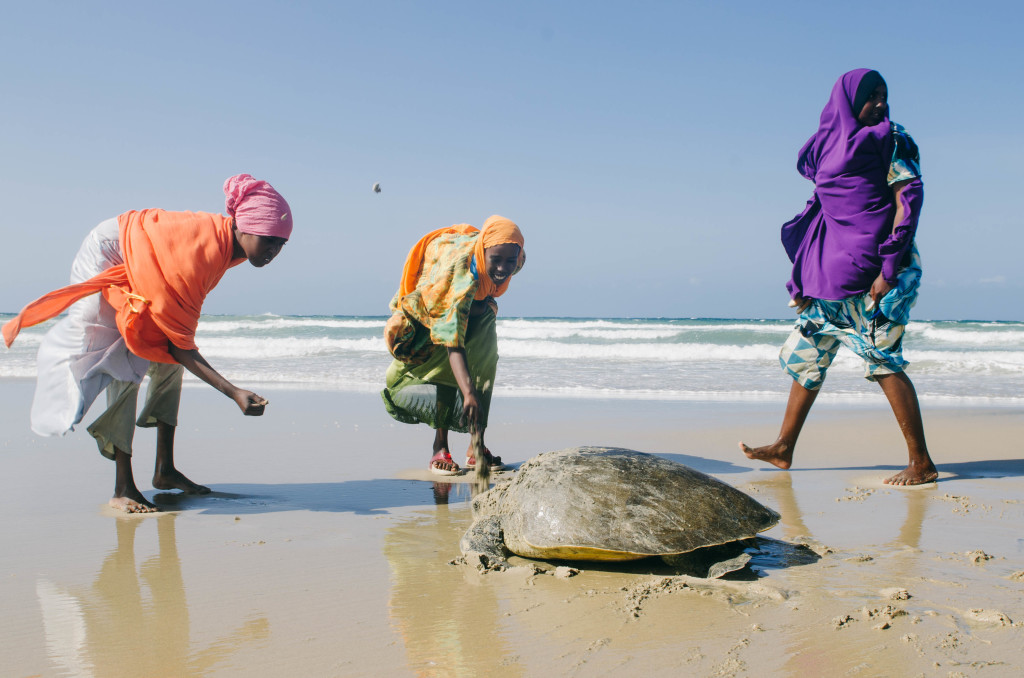

How did you navigate between each country? Did you work with any tour companies or local organizations to coordinate your travel?
If local people can travel around, so can you. If you need to get to a small dot on a map, you’ll get there eventually with patience. There were so many times I found myself sitting under the shade of a tree next to a road, kilometers from the nearest town or house, waiting for a bus, share van, pick-up truck, tractor or bicycle to go passed and pick me up. It always does and you always get to your destination. As a stubborn and independent person, I like to do things away from tours as much as possible. This was possible for most of the countries I visited, except for excursions to remote or protected areas such as the Danakil Depression in Ethiopia, climbing Mt. Kilimanjaro in Tanzania and the inevitable Masai Mara safari in Kenya. In these particular cases, there was no advanced booking but an investigation of different tour providers, what they offered and the inevitable bargaining to get the price down!!!
Did you have any expectations or preconceived notions about the countries/cultures you would be exposed to?
My preconceived notions of Africa were very much related to the physical landscape, believing months of travelling would be spent with a backdrop of savannah and hot, dusty plains. This idea was vanquished very quickly on one of our first few stops in Southern Uganda, where we hiked in the lush hills of the Rwenzori Mountains. Green stretched further than the eye could see, and the soils were a rich deep red, fertile and ready to grow crops. I was constantly surprised at just how diverse the landscapes across Africa were; from crystal clear waters on the Tanzanian coast, the endless flow of waterfalls in Lesotho, salt lakes in Ethiopia and endless sand dunes in Egypt.
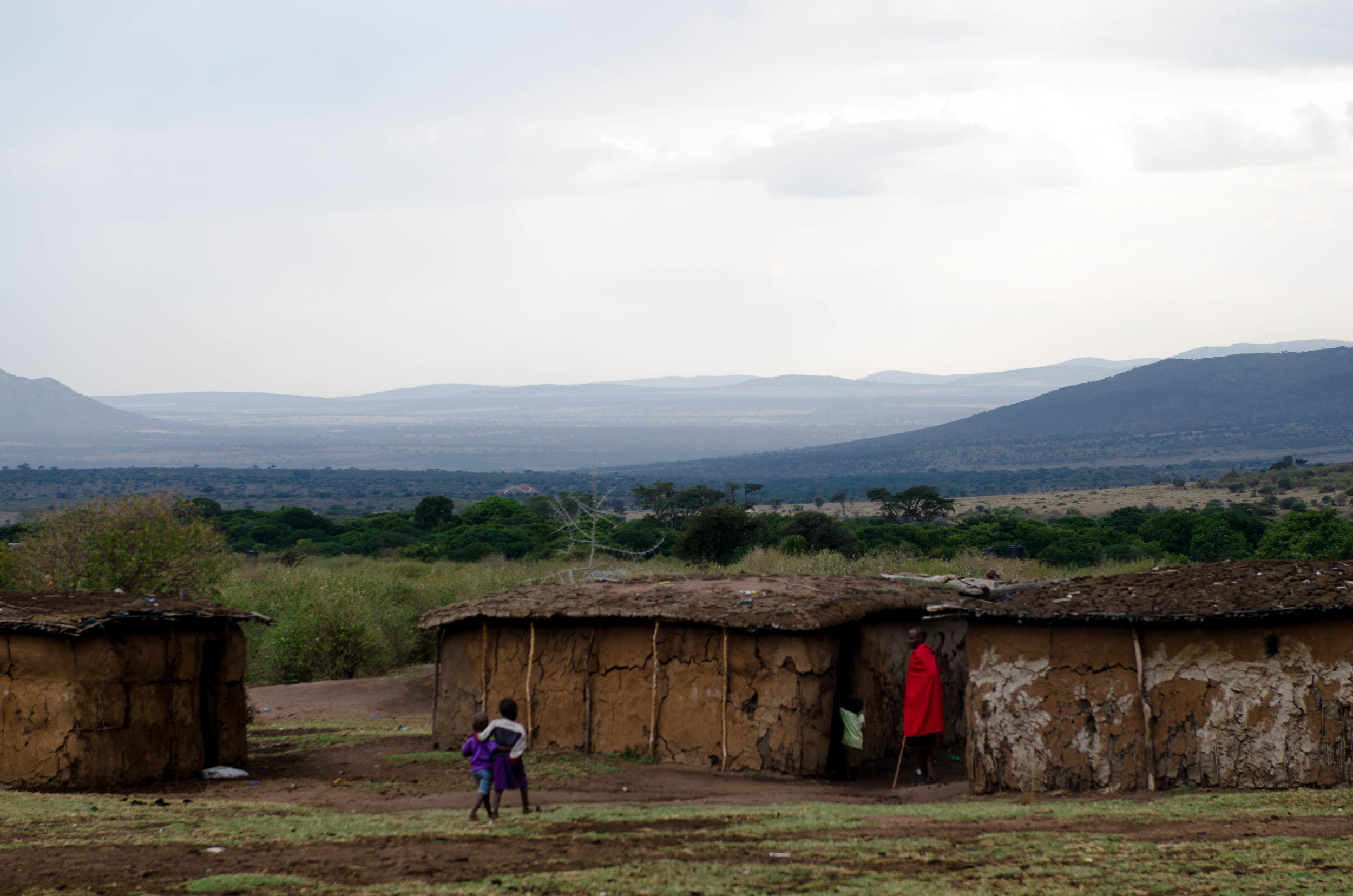
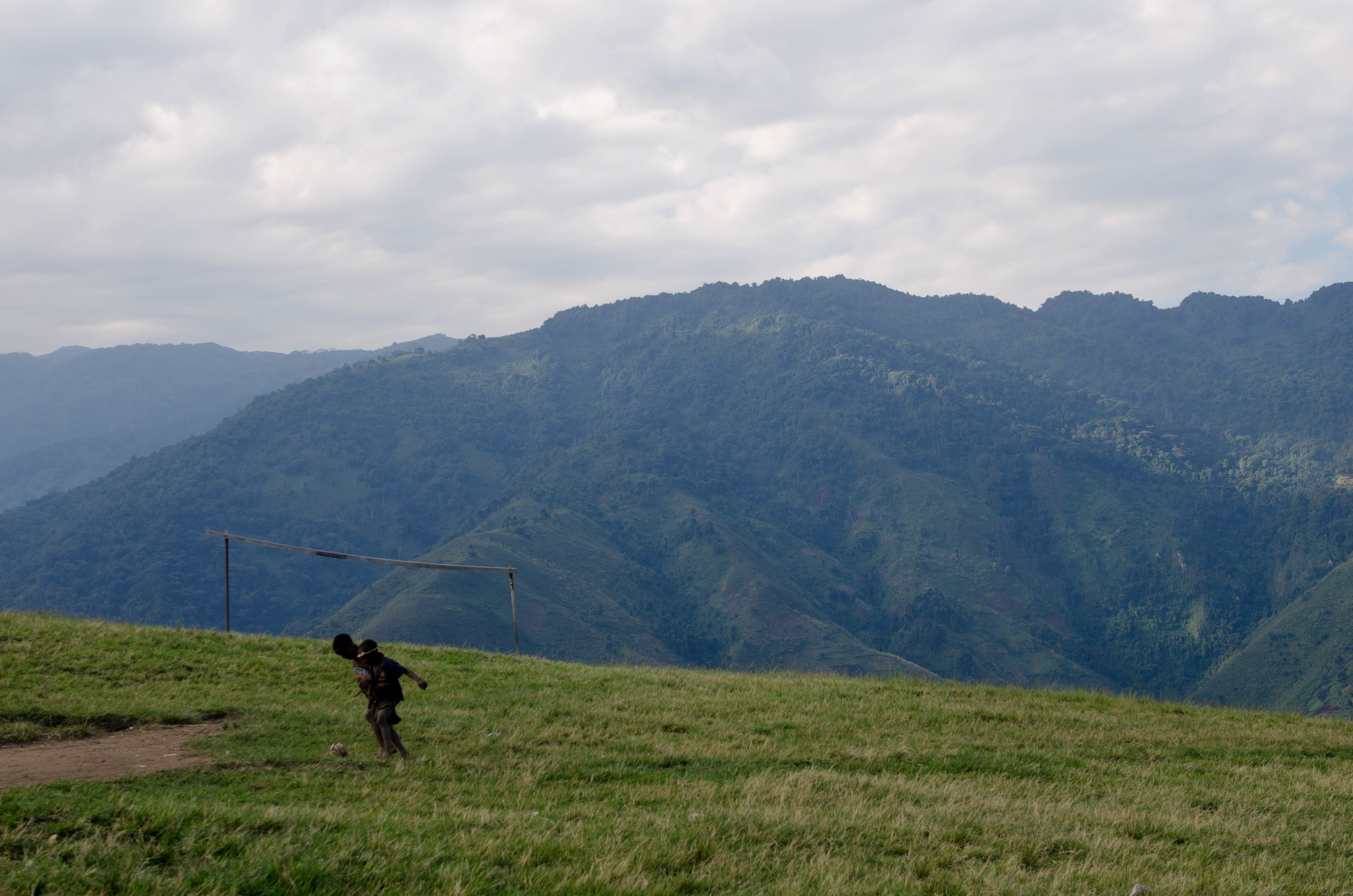
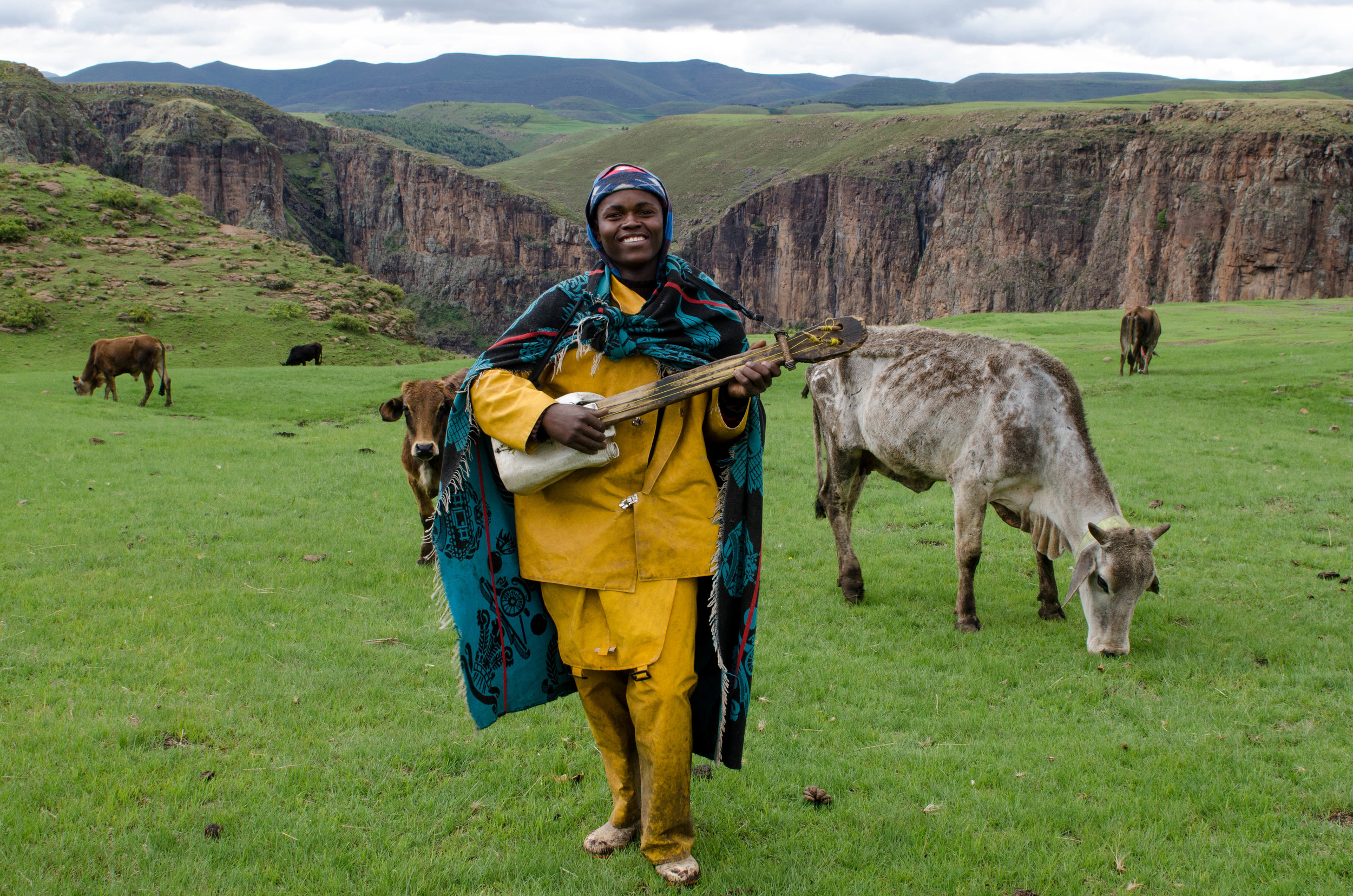
What would you like people to know about these countries that the media does not show?
Far too often we are exposed to images of Africa through the media as a place of poverty, conflict, war, inequality and an array of socio-political issues. While all these issues do exist, they do not define the continent nor do they represent the countries or people living there. People NEED to know that this a continent of immense resilience and strength, where no matter the tribe or religion, the language or the people, there is a sense of community and unison unlike anywhere in the world. I was exposed to such raw connections with local people, who showed a kindness and compassion similar to what you find in your own family back home.
Of all the photos you took during your travels within Africa, which would you say is your favorite?
My favorite picture was taken of a man in Semonkong, Lesotho who was caring for his cows while playing with a makeshift guitar in his hands (see image above). Before approaching him on the hill, I could hear a soft whisper of songs carrying across the nearby mountains. It had stopped raining and was hardly cold, but he stood there in his yellow rain jacket, with the Basotho blanket wrapped firmly around his shoulders. For me, taking portraits is the only way to fully capture the essence of a country or part of the world as it offers a glimpse into the lives of those who live there. The sense of pride on his face is absolutely incredible and right here, in this moment, he could be a King, a rockstar, a lawyer or a farmer but it doesn't matter. He is proud to be standing there and this sense of pride carries across every African country I was lucky enough to witness.
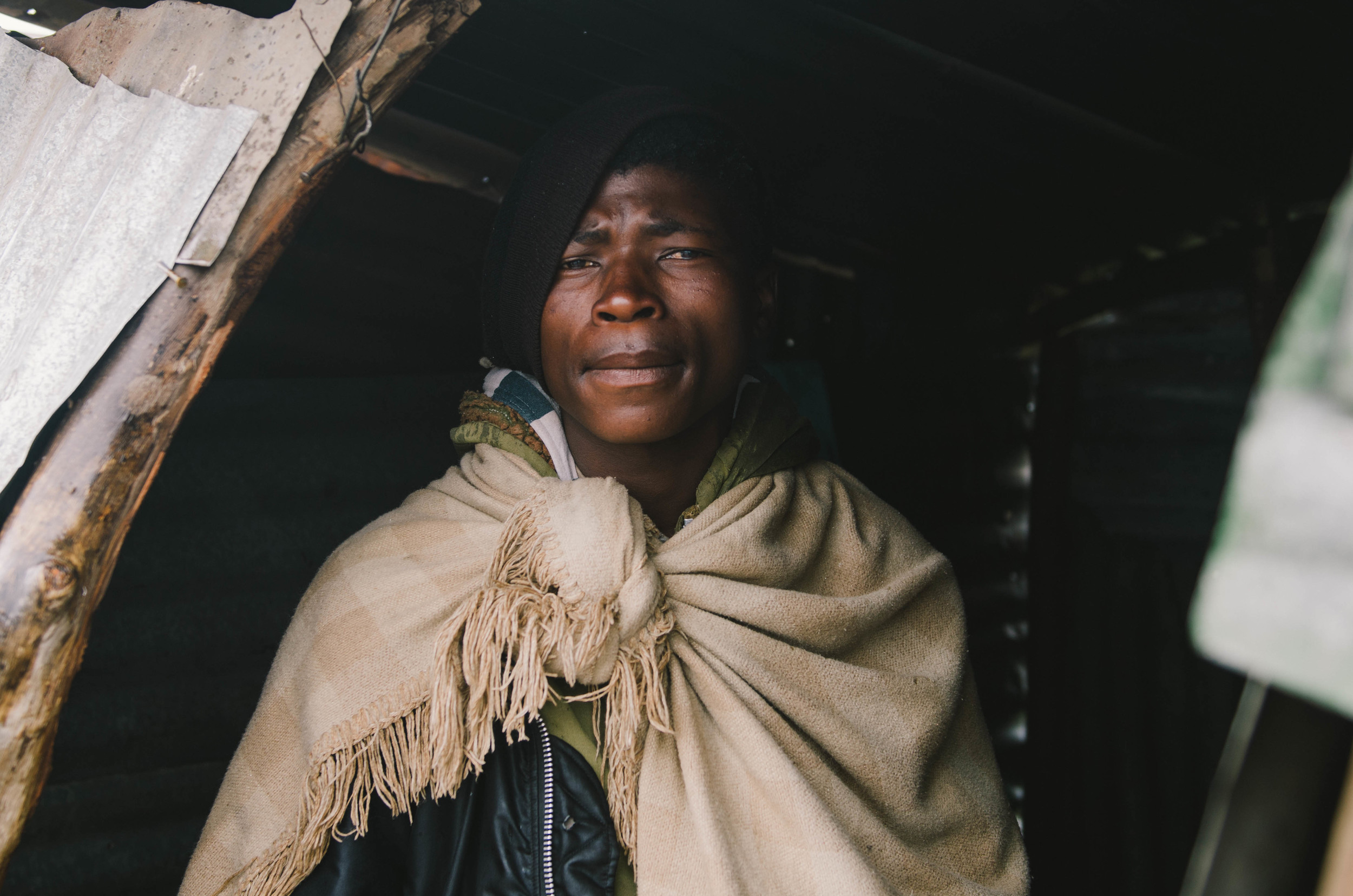
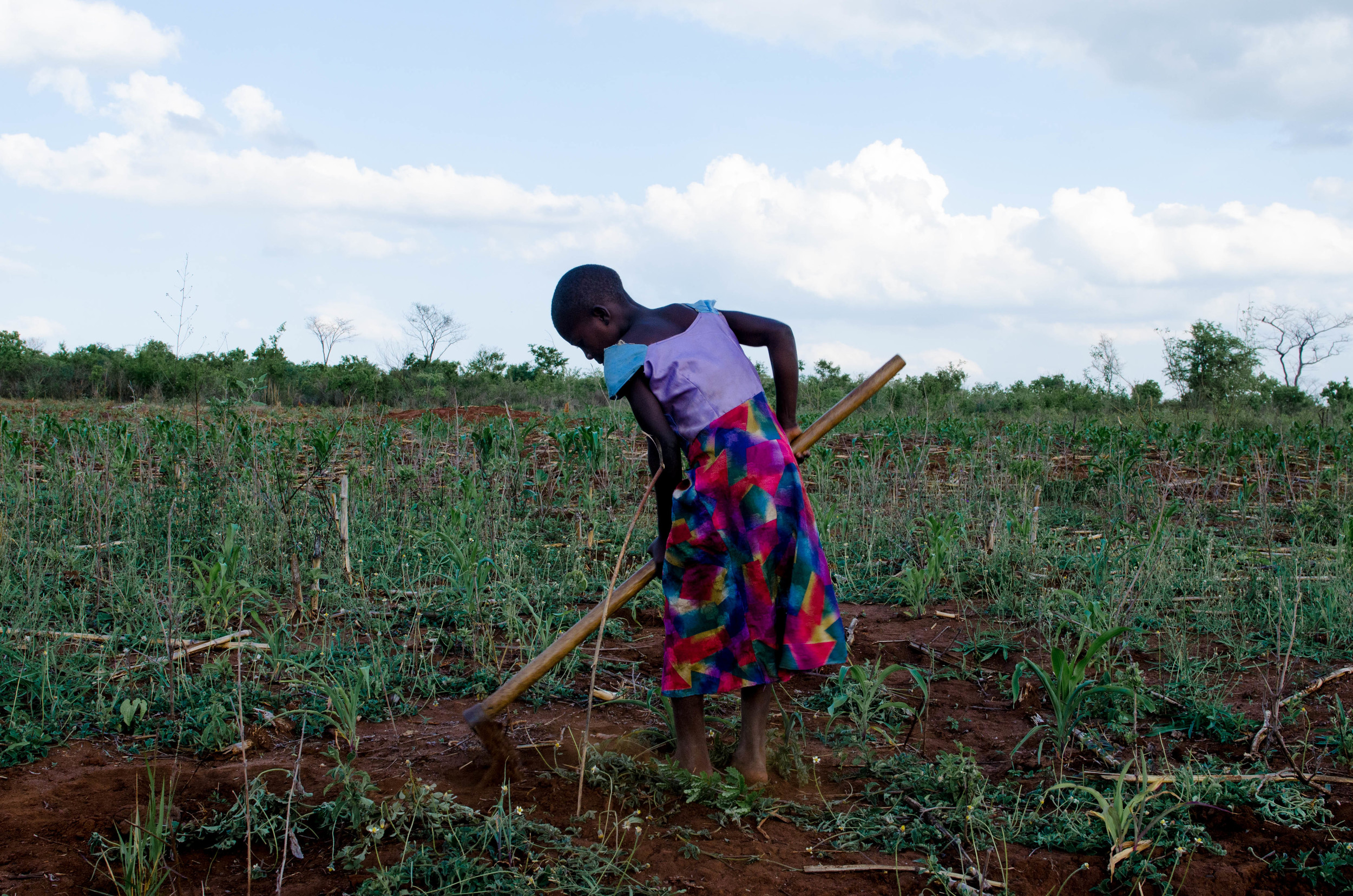
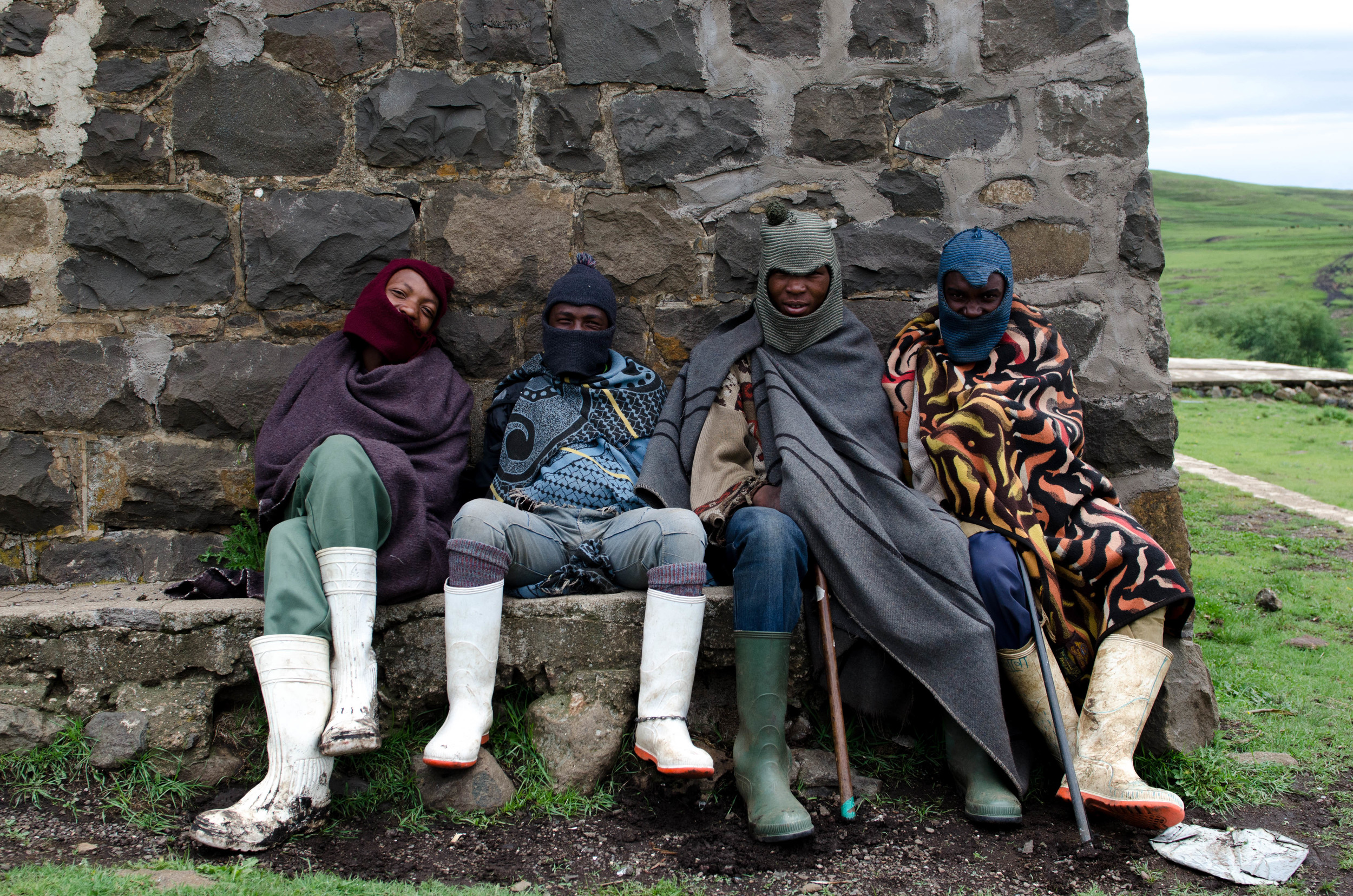
What recommendations can you share for future travelers also hoping to backpack throughout Africa?
-The Swahili coast, stretching from northern Kenya to Mozambique is a sight in itself. Tropical white sand beaches, ancient Stone Towns, the echoing Call to Prayer and the melting pot of Arabic and Indian spice and flavours. Zanzibar sits firmly as a timeless and magical place I will never forget. There is a restaurant called Luckman’s where local Zanzibari curries are served for around USD$2 and are heaven on Earth.
-A crowd favorite, and rightfully so, is the city of Cape Town in South Africa over the Summer season. The city has incredible nightlife, beautiful beaches, brightly colored festivals and markets, hipster cafes, beautiful museums, street-food and an obvious diversity of people and cultures.
-Overall, Ethiopia sits firmly as my favourite country in Africa for independent travel. Accommodation and transport cater for budget backpackers, fasting days mean a wonderful plethora of vegetarian options, stark contrast in beautiful landscapes and the people are very warm to solo travelers. I made a lot of incredible friends who welcomed me into their homes and drank A LOT of coffee.
-As a final recommendation I could only suggest to try and WWOOF (Willing Workers on Organic Farms) even for a short amount of time in one of the countries that the network exists. In exchange for your time and energy working on a farm, you receive board for free or at minimal cost and have the genuine experience of rural living. More than 600 million people across Africa are from rural households, often relying on a form of agriculture for subsistence or their livelihoods. We were put to work in the Ngerengere River Eco Camp in Central Tanzania, where we maintained and watered crop, dug countless holes, assisted with the construction of a mud-hut and taught in a local school three days a week. It was hard work, very remote, and a true test of strength and patience, but easily my most rewarding experience to date.
Most people tend to generalize Africa as one big “country”, forgetting it is in fact a very large continent with diverse and differing cultures and languages. What would you say were the biggest similarities and differences you experienced in each nation?
Having extensively travelled in Asia; a continent known for its mass diversity, I too was misled by a misconception that countries in sub-Saharan Africa would be similar. The naivety of this original thought makes me laugh now that I know that more than 2000 languages are spoken across the continent and that historic inaccuracy in cartography means Africa appears five times smaller than it should in normal mapping scales. As you cross thousands of kilometers and get stamped in and out of borders, a different world opens up. From Kenya to Tanzania, you say goodbye to English and ‘Karibu’ to Swahili. From Ethiopia to Sudan, Orthodox churches are replaced by the echoing Call to Prayer five times a day. From the modern urban centers of hipster culture in South Africa to the mountain kingdom of Lesotho, the clock turns backwards and nomadic lifestyles remain. There is no end to the variations between countries, but across regions, in cities and even in households.
From Cape Town to Cairo, the one thing that unites the great diversity of the continent is the spirit and pride of African people. It is exhibited in the face of children going to school, a mother harvesting crops with her baby carefully tied to her back, a young man brushing off his crisp suit on the commute to work, in the excitement of every football game and the endless spectrum of colours in every marketplace. It is a spirit that cannot be broken and a quality of life I think about and miss every day.
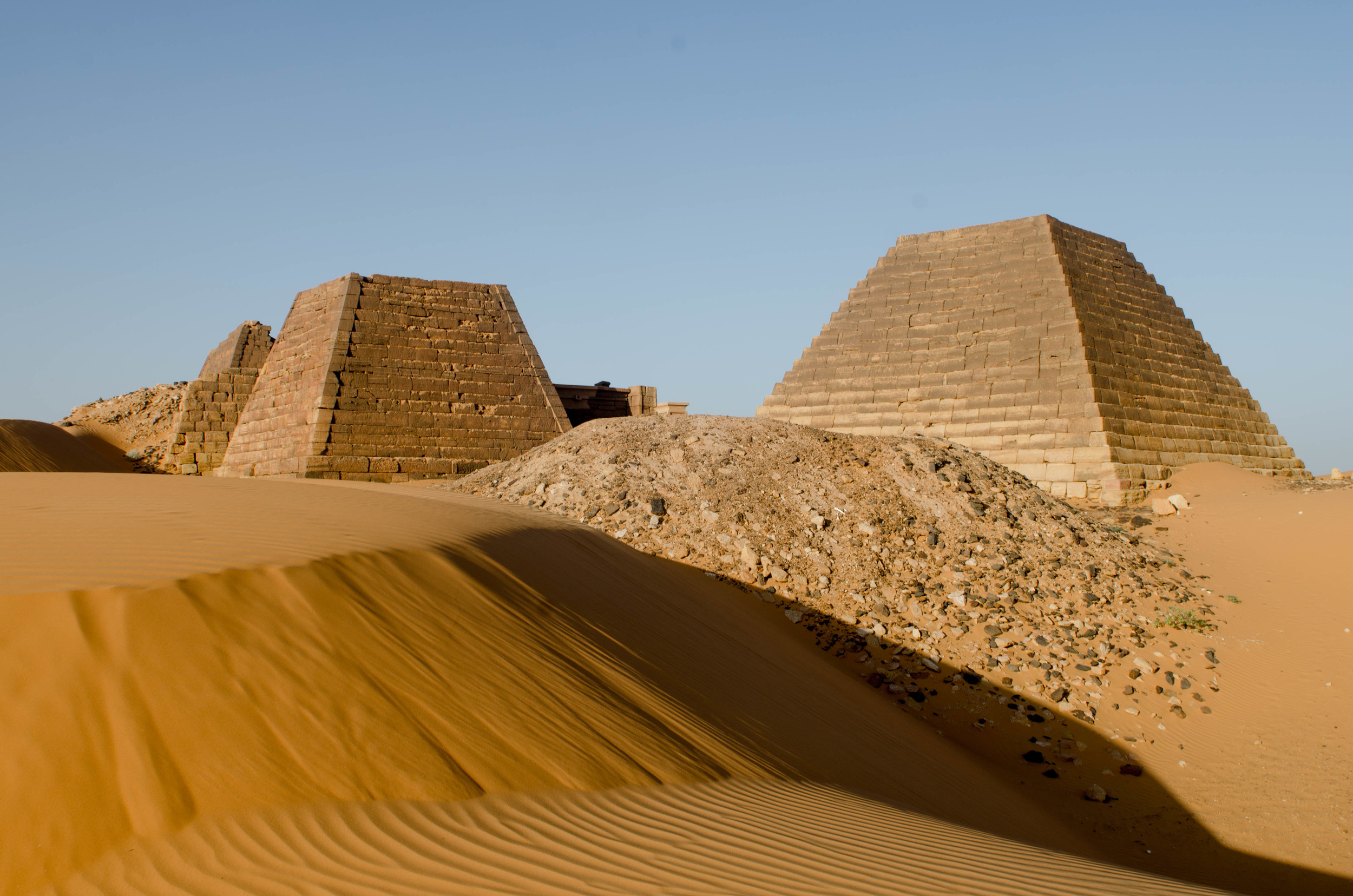
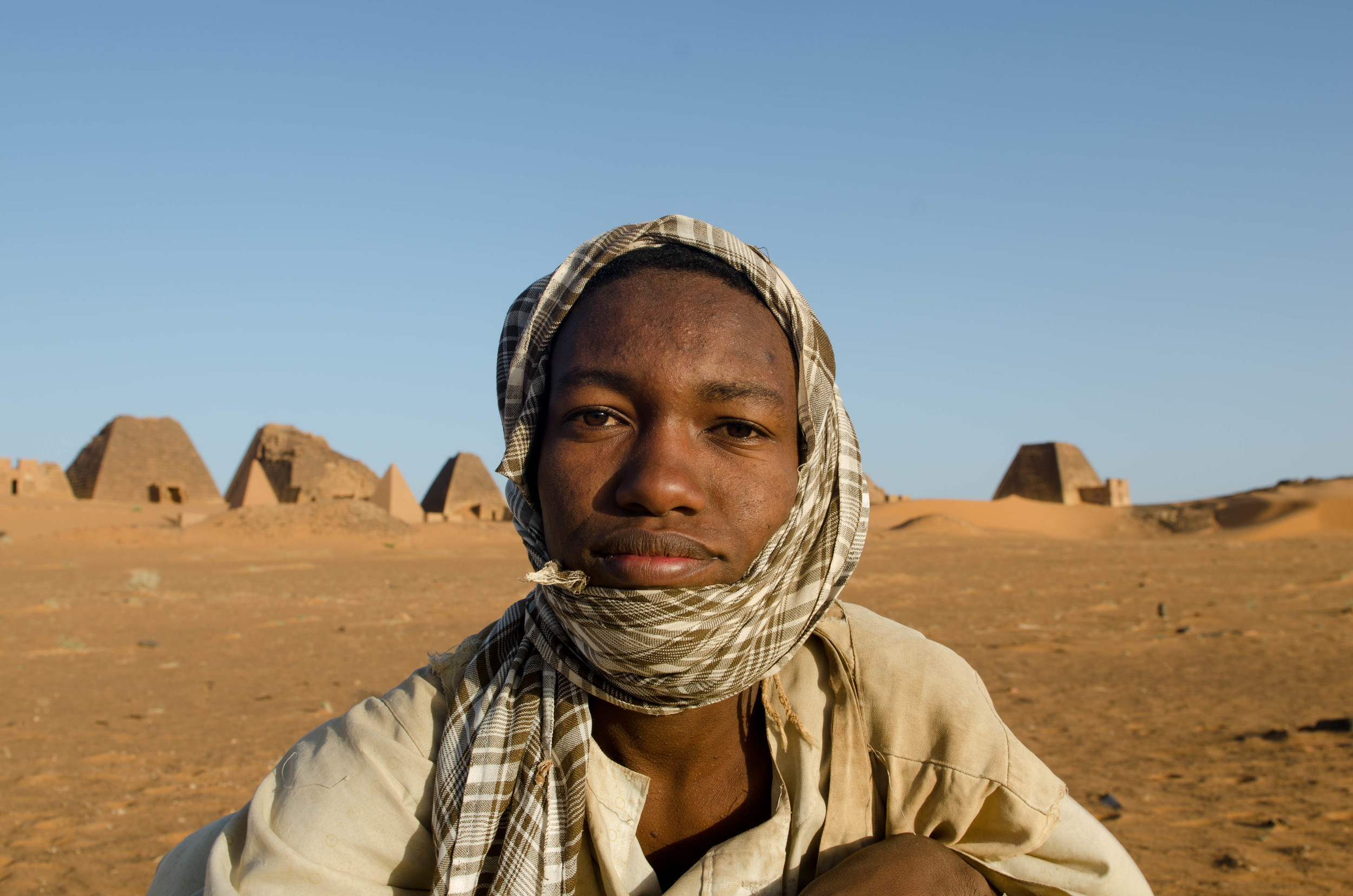
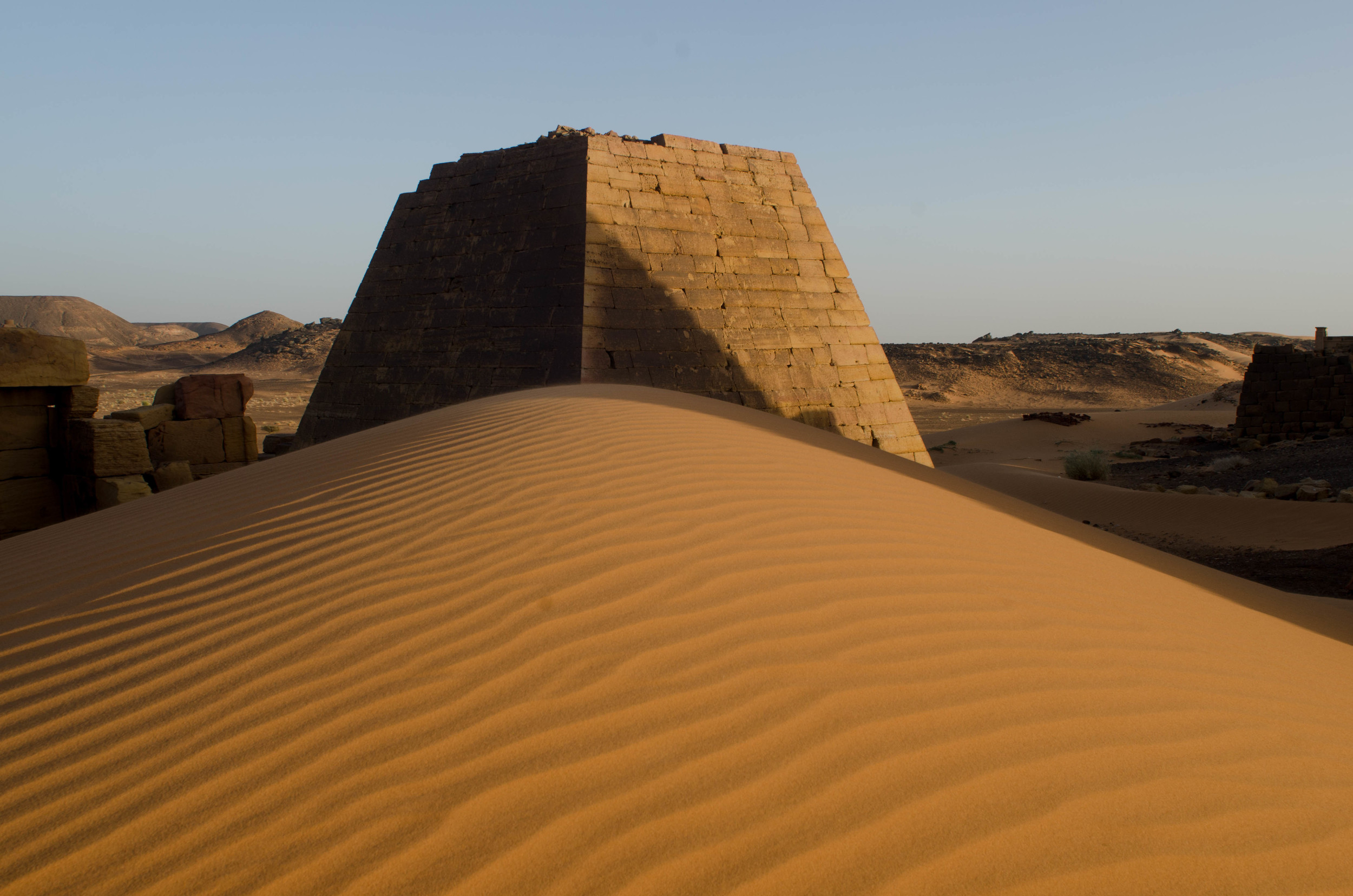
Travel has a tendency to look very glamourous, though that is not always the case. What types of challenges did you face, and how did you overcome them?
There are many ways that a person can travel, but backpacking or independently organizing a trip is definitely not glamorous. It is not a holiday and it’s important to realize that there is a big difference. This is an adventure. It is exhausting and painstaking and frustrating all at the one time. But that is what makes the experience so worthwhile. When you travel you have to be open to the fact that your bus will break down in the heat of the day, that you could contract a deadly strain of malaria and end up in a remote hospital, that your shoes and iPod will be stolen in a share taxi on your first day, or that farm work means hours of digging in forty degree heat. These are only some of the few obstacles we faced…
The hardest and most exhausting part of travelling Africa is the bargaining. As a foreigner, the reality is that you are always the token ‘mzungo’, ‘faranji’, ‘malungo’ or ‘hawajah’ which means you can never really blend in and prices shoot to the sky for absolutely everything. Every bus ride, every piece of fruit in a market, every bed to sleep, every roadside snack becomes a game of bargaining. If you plan to spend a long time in each country, learn the currency and numbers in the local dialect immediately.
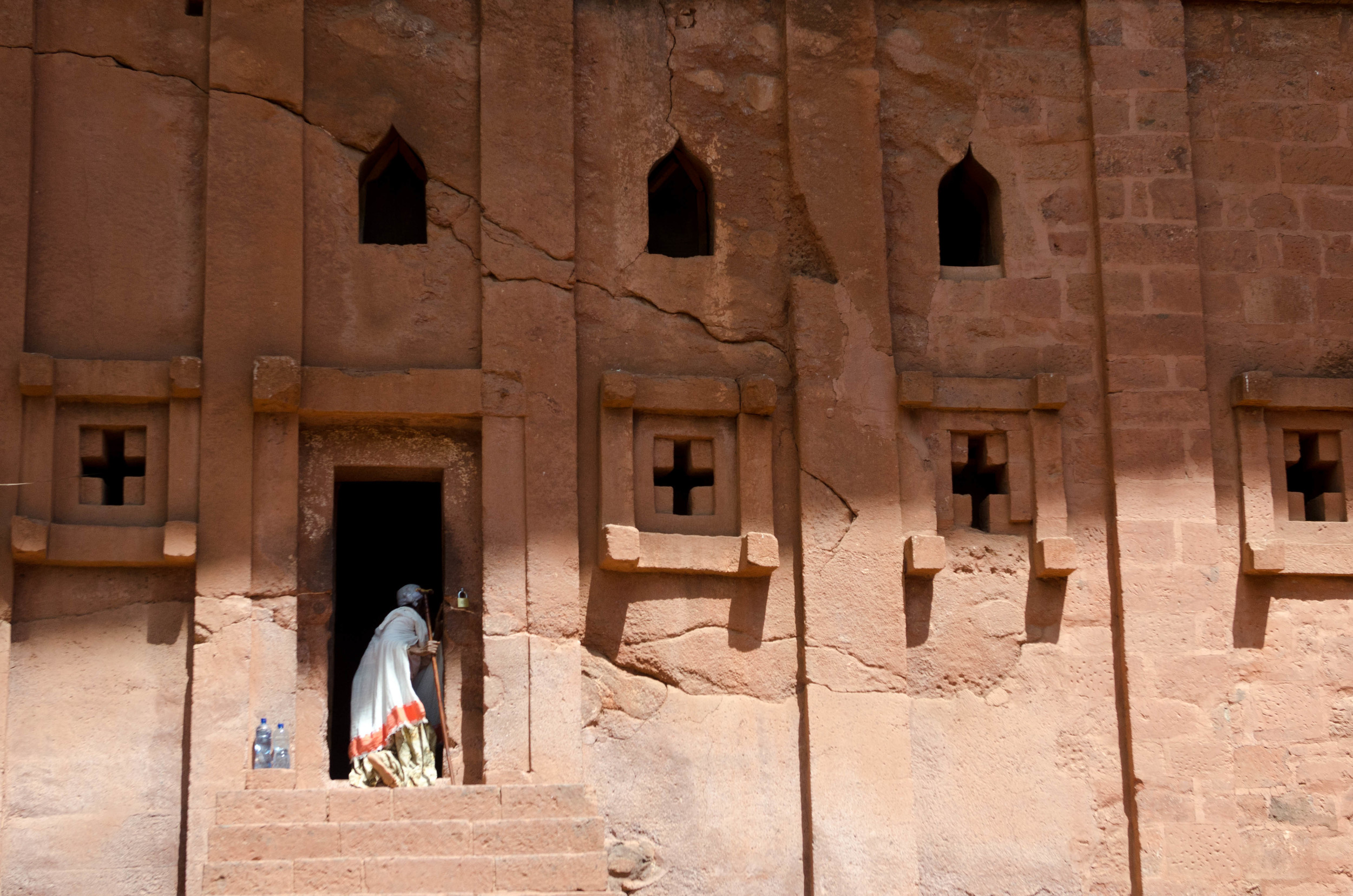
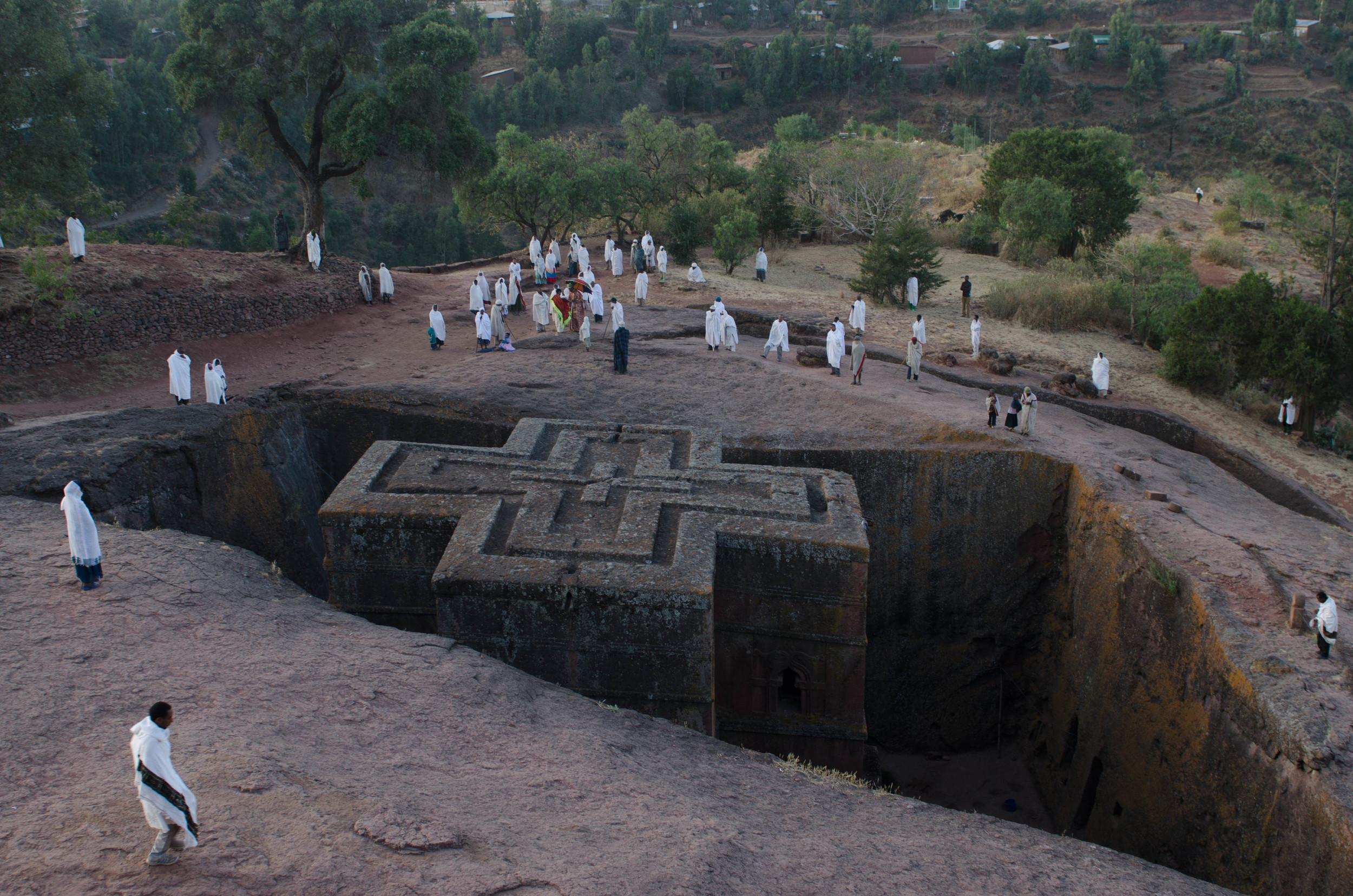
What impact did your trip have on you? What are some of your most memorable moments looking back?
This trip has had an impact so profound I often lose words trying to explain it. No matter where I am or what I do, something reminds me of the time spent and the experiences made across such a beautiful and diverse continent. When I look back at photos I can barely believe I was there, and I often find myself laughing as I think back to fond memories on bus journeys, in cafes, hostels or under shady trees. There are so many times in life where we may lose sight of our direction, questioning what it is we should be doing or the next thing we need. We invest so much time and energy into worrying about tomorrow without appreciating the day that we are living. For any who has lived or seen the African way of life, they should know the importance of welcoming every day as it comes with a new sense of patience, gratitude and virtue.
My most memorable experiences were made not by the moment itself but from those that shared the journey from start to finish. Snorkeling on pristine reefs in Zanzibar and driving on dangerous mountain passes with my best friend and travelling companion. Meeting countless other travelers in hostels like Mayoka Village where we spent warm days eating mangoes by Lake Malawi. To the dedicated workers on the Ngergere farm, the doctors in the tiny hospital trying to treat my bad case of malaria, the families that welcomed me with coffee ceremonies in Ethiopia, the countless teas bought in Sudan and the smiling faces of kids when they saw crazy foreigners with backpacks running through markets, on buses, walking on sidewalks or at the beach. I miss it every day.
What surprised you most about your experience?
I would say I was surprised by how many carbohydrates can make up a single staple meal (in Uganda it was around five), how much dust can come through a window on bus journeys, how difficult it is to breathe at 5895m above sea level, how graceful the giraffe runs, how many different names for ‘maize flour’ exist, how necessary cold soda is on a hot day, and how overly patient and tolerant the African people are with delays and timing.
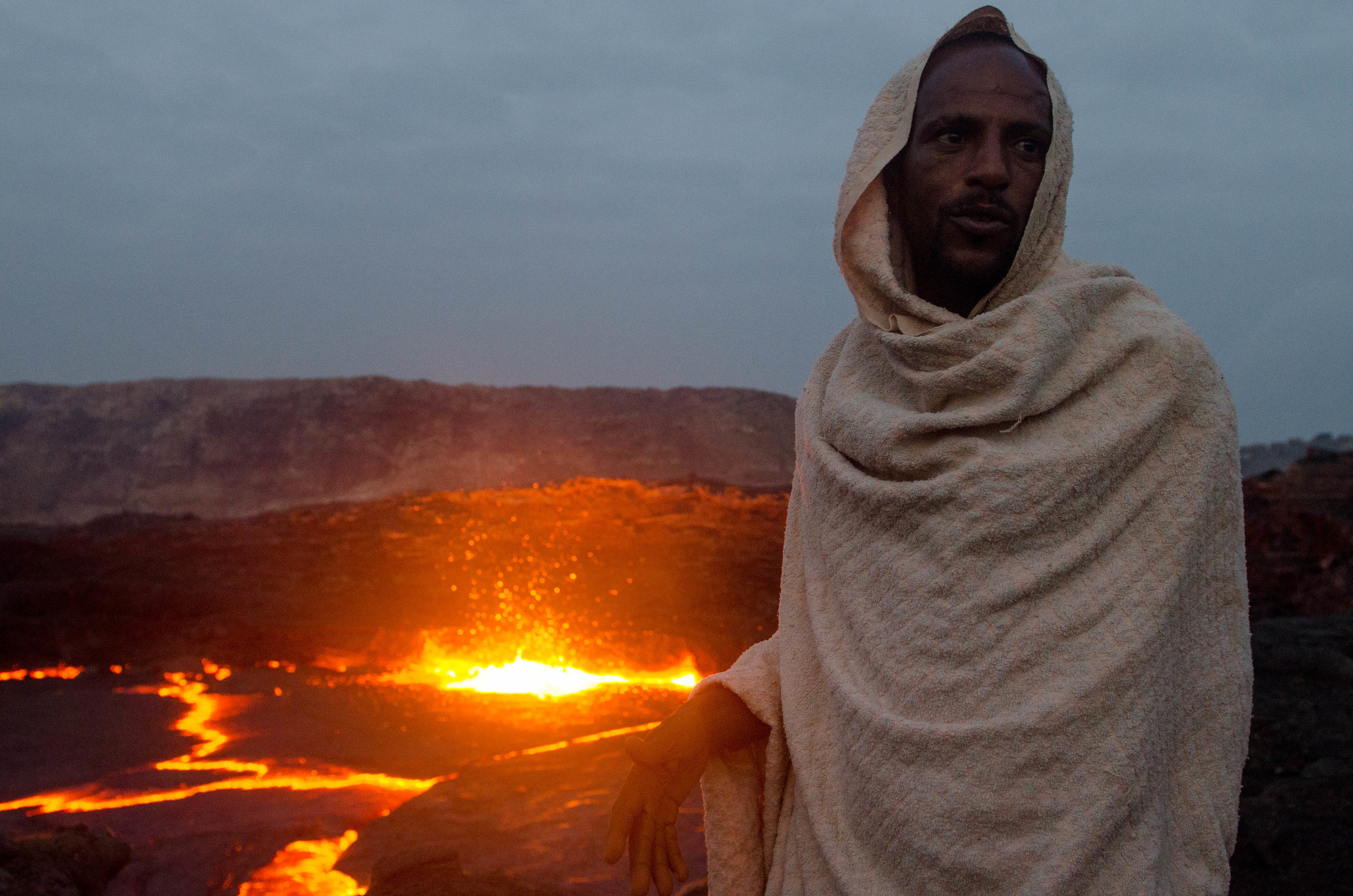
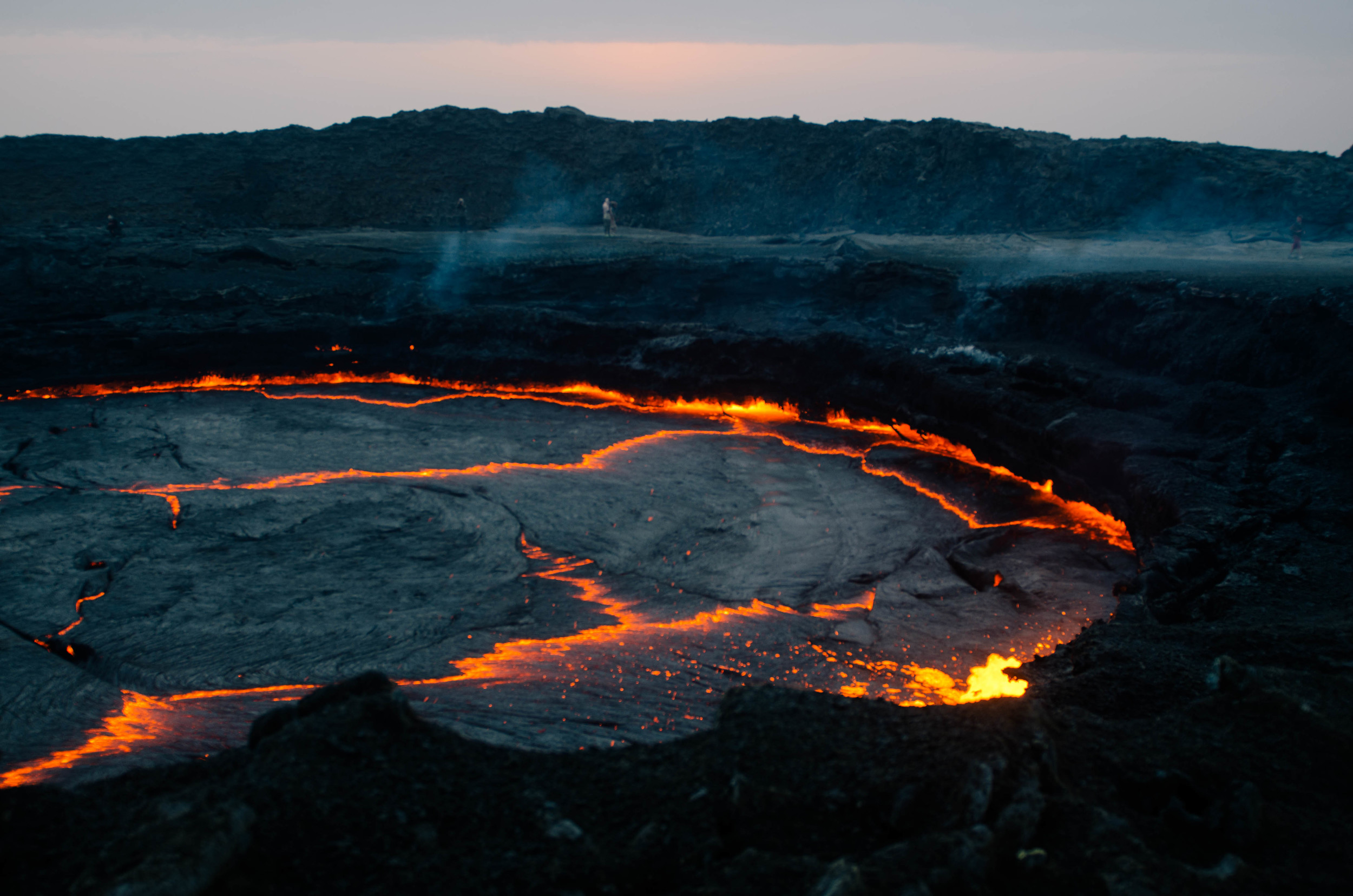
What advice can you give to those interested in traveling a similar route?
Make no plans, be prepared for absolutely anything to happen and embrace the people around you, both local and other travellers. The moment you leave you will spend each day wishing you could return, so make the most of your time, whether short or long, and soak up as much as you can from a unique and diverse continent like no other.
What’s next for you?
My focus for travel in the next few years is going to be remote, adventurous and exploring more undiscovered locations. I’m spending December in Yemen and Oman, have plans next year to see islands of the Pacific and I’m aiming to do another long overland tour through Central Asia by the time I hit 25.
To see and read more on Jon's mesmerizing experience backpacking through Africa (as well as Southeast Asia) be sure to visit his website www.renovatio-photography.com and follow him @Jonwcollins on Instagram.
Images Courtesy of Jon Collins


